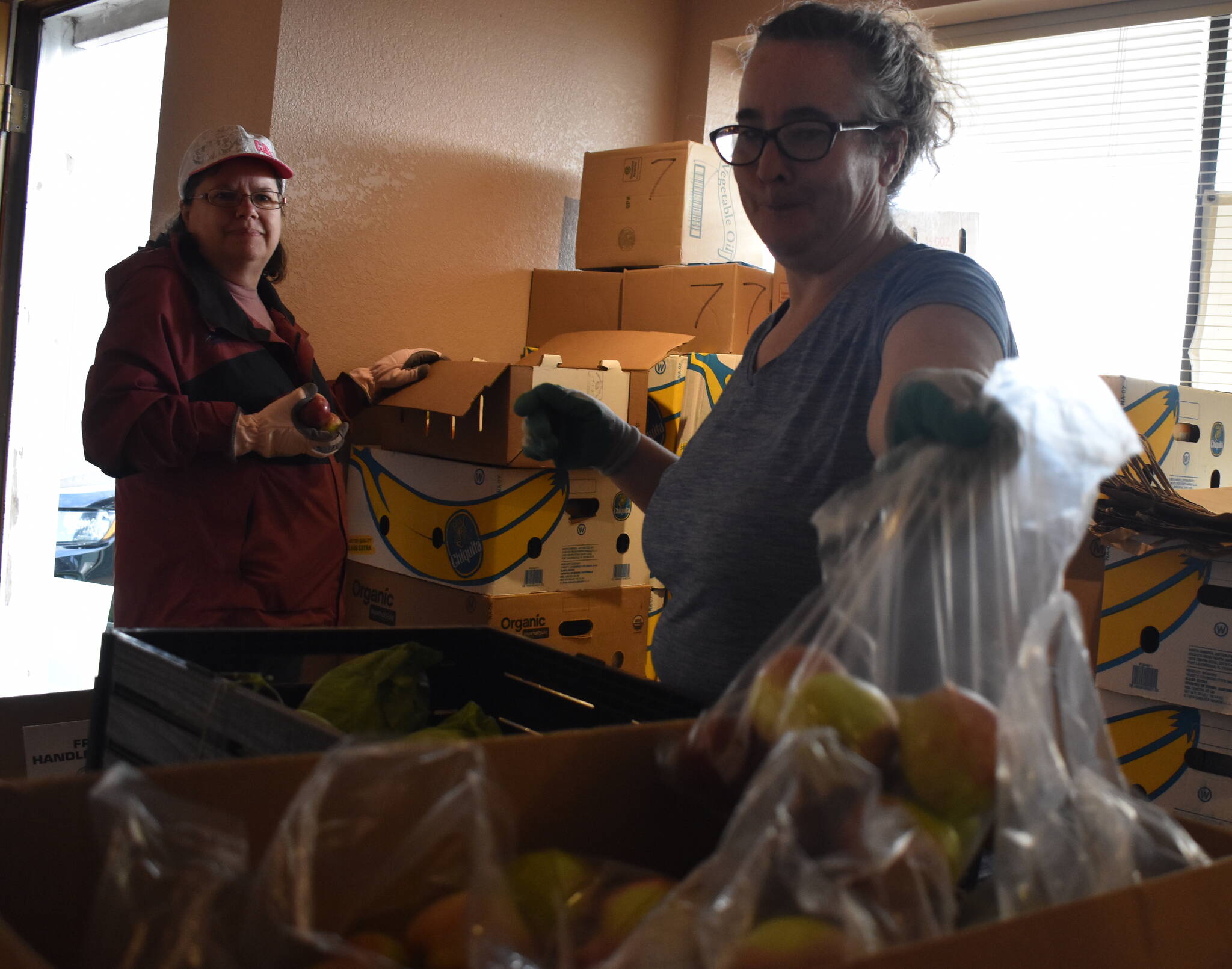K Bramstedt keeps a precise count of every bag of food leaving the Aberdeen Food Bank, and of every person whose plate it reaches. From her folding chair post inside the food pantry at 2120 Commerce St., she peers through a pair of round glasses at a laptop screen with a spreadsheet tallying the number of mouths fed in the last several years.
This year’s count is larger than Bramstedt, a former food bank director and 40-year volunteer, has ever seen.
Bramstedt estimates the food bank fed 36% more people so far in 2023 than at this time last year. That equates to an increase of anywhere from 200 to 1,500 clients per month. Halfway through the two-hour service period on Tuesday, 12 new families who had not visited the food bank previously pulled their cars into the gravel lot in need of meals.
“That’s not atypical,” Bramstedt said.
The added pressures of 2023 are even more significant considering that in 2022 the food bank served three times as many people as it was serving before the pandemic began.
But food supply, including donations from the community, haven’t followed the same swelling trend, and have in fact done the opposite.
Food pantries in Grays Harbor, along with others in the region, receive much of their food supply from Coastal Harvest, a Hoquiam-based nonprofit that supports the smaller pantries with food deliveries. That supply has dwindled in the last few years for a number of reasons, said Coastal Harvest Executive Director Brent Hunter.
Supply chain issues are still lingering from the pandemic, while natural disasters have affected farms where key ingredients are grown.
“There’s just a lot of hiccups out there that are still happening,” Hunter said.
Coastal Harvest sustains its own food supply through community donations, buying its own food, local growers, and a larger Seattle-based food network, Northwest Harvest. Like the Aberdeen Food Bank, donations to Coastal Harvest are down, Hunter said, and it’s become more difficult for Northwest Harvest to keep the food pipeline flowing.
“This is a nationwide problem,” Hunter said. “It’s not a Grays Harbor problem. Every food bank network in the country is feeling the same thing.”
With donations and external supply down, Coastal Harvest has become increasingly reliant on local farms. Hunter said the organization has ramped up relationships with growers to ease some of the supply chain problems, and in turn provided a steady stream of fresh fruits and vegetables — scarce items during the past few years — to food pantries.
“We have been very fortunate with fresh fruits and vegetables,” Bramstedt said.
Bramstedt said that’s helped the Aberdeen Food Bank stay open each Tuesday despite more people coming through the door.
In addition to its weekly food service, the food bank distributes food bags among the homeless community each week and provides a monthly food box for seniors.
The food bank hopes to transition to a client-choice model, in which people can browse shelves of food like a grocery store, in the next few years.
But the food bank has also been forced to purchase more food directly to supplement its offerings. With prices rising, “that can only last so long,” Bramstedt said. Food costs in Western Washington have risen by 4% in the last year, according to the U.S. Bureau of Labor Statistics, and items like peanut butter are especially pricey but critical to the food boxes the pantry provides.
Other items like canned vegetables, canned fruit, mac and cheese, pasta, canned beans, canned tuna and canned chicken, are lacking. Because of high costs, the Aberdeen Food Bank won’t provide a Thanksgiving meal box this year, as is tradition. It will still provide a Christmas meal, Bramstedt said.
“We have to pay for all of that,” she said.
Purchasing food “can only last so long,” Bramstedt said. She said community donations, both food and financial, will be critical to the food bank’s future success.
Contact reporter Clayton Franke at 406-552-3917 or clayton.franke@thedailyworld.com.



